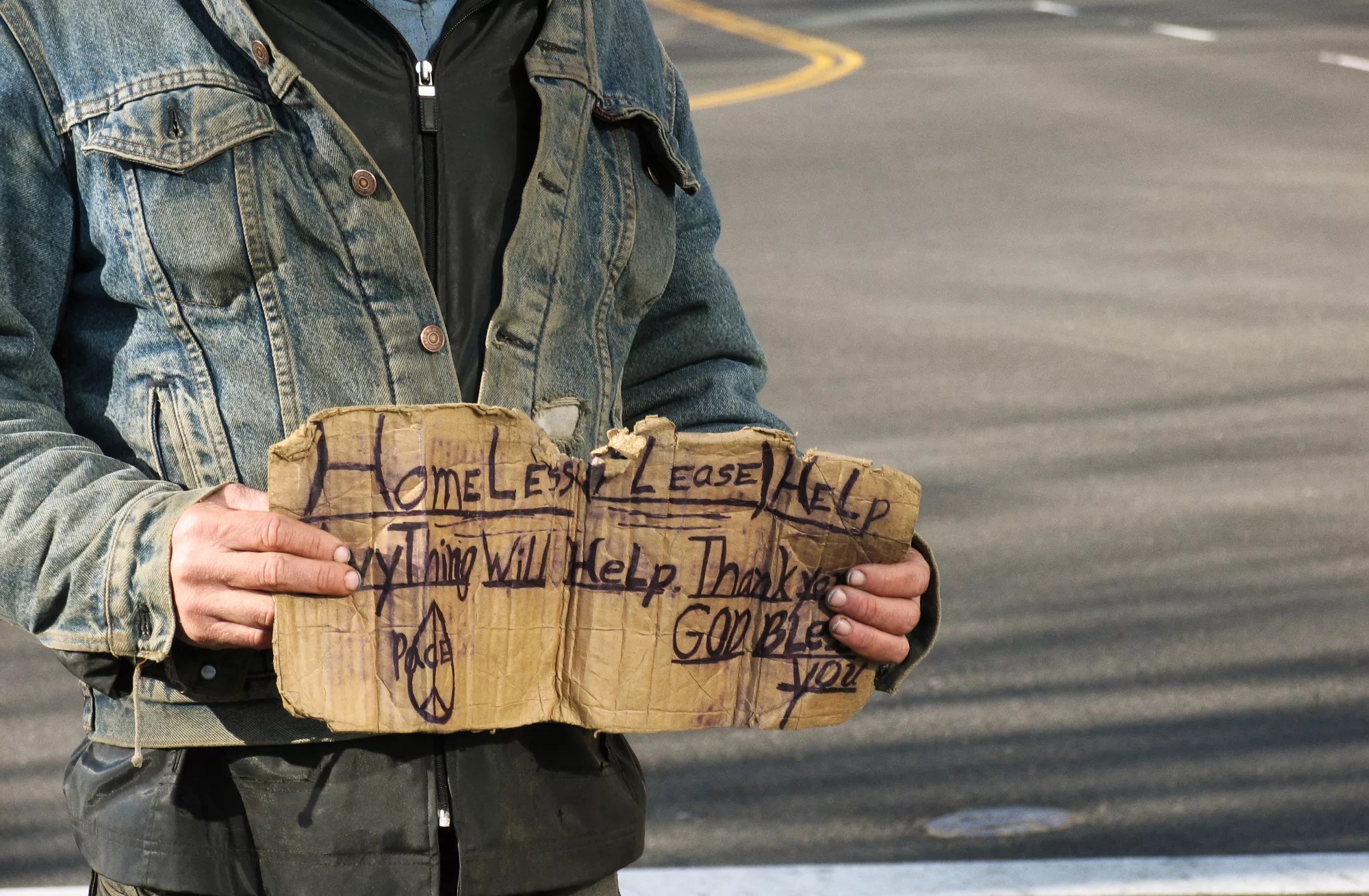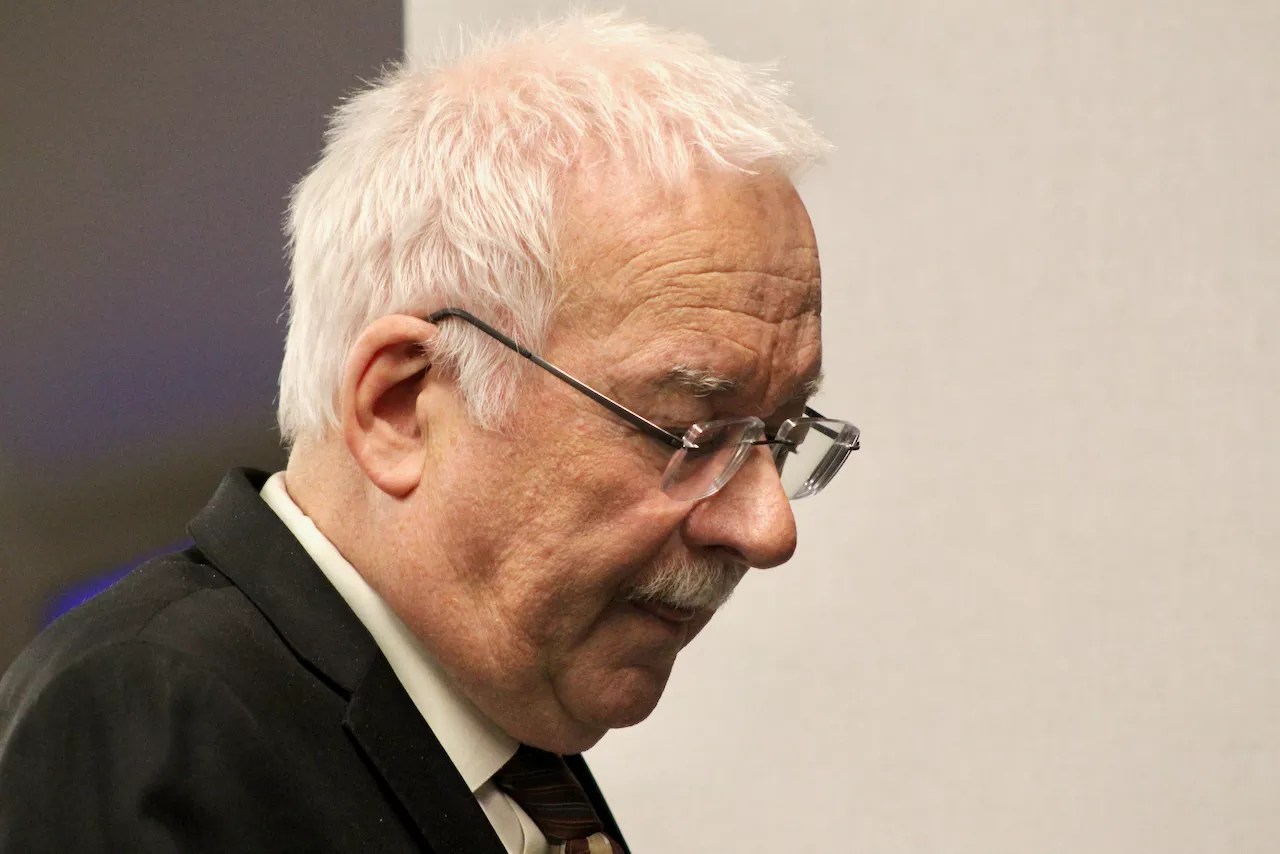
kevinruss/Getty Images

Audio By Carbonatix
For the third year in a row, a Republican state lawmaker is seeking to make it illegal for unhoused people to be in traffic medians.
Last month, GOP state Sen. John Kavanagh of Scottsdale filed a bill for the upcoming session to criminalize pedestrians standing in medians. Senate Bill 1029 seeks to make it illegal for pedestrians to “remain on a painted traffic median or a raised traffic island or median that is less than ten feet wide” unless they are crossing from one side of the street to another or are dealing with an “exigent circumstance” like a medical emergency.
Kavanagh told Phoenix New Times it’s a question of safety for him.
“I do think it’s necessary to clear people off of narrow medians because of the danger involved to them and cars that might hit them,” Kavanagh said. “It’s just dangerous when you’re doing 30, 40, 50 miles an hour and there’s somebody on a narrow median a foot away from you – especially some of them who might be intoxicated, which occasionally happens.”
Kavanagh said he hoped “safety will prevail over politics” and result in the bill’s approval. Currently, the text of the bill specifies no penalty for a violation, though Kavanagh said he planned to amend the bill to state that a first violation results only in a warning. It’s not clear what would happen after that.
But Democrats and advocates for unhoused people say the bill, which will effectively target unhoused people who panhandle at stoplights, does little to actually help the people it supposedly protects.
“When you don’t offer services to help them, what you’re doing is creating laws to eliminate them,” homelessness advocate Ben Jeffrey said. He added that the bill would “exacerbate the marginalization of those who are already vulnerable and struggling to survive.” Jeffrey took issue with the bill’s vagueness and said enforcing it would be difficult and inconsistent.
“The language surrounding ‘exigent circumstances’ is troublingly vague and open to misuse,” Jeffrey said. “Are we genuinely expecting pedestrians to justify their emergency status while standing on a narrow median, dodging traffic?”
Democratic state Rep. Analise Ortiz, now a state senator-elect, also ripped the bill, calling it “nothing more than a move to criminalize a symptom of poverty, rather than address the root causes of homelessness in Arizona.”
“Republicans have no evidence this policy will increase public safety,” Ortiz said. “Meanwhile, they refuse to adequately invest in social services and homelessness preventative measures, making all of us less safe in the long run.”
There is no data that suggests people standing in medians are causing accidents or injuries. Kavanagh said the number of accidents related to people standing in medians is “an unknowable statistic” because there is no code for such incidents on accident reports. Asked if he’s heard anecdotal reports of accidents involving pedestrians in a median, Kavanagh wasn’t specific.
“Every now and then you hear about someone being hit,” he said, “but it’s hard to tell if it’s someone crossing the street swiftly or just standing there.”

Sen. John Kavanagh said outlawing being in a traffic median is a safety issue, though critics point out it disproportionately affects unhoused people.
Elias Weiss
Not the first try
This isn’t the first time Kavanagh has filed a bill to ban pedestrians from being in medians. He pushed a similar bill, Senate Bill 1022, during the 2023 session. It languished in the Senate’s Rules Committee and never received a vote.
That version’s language was more focused on people asking for money, making it illegal to “sell goods, solicit donations or beg” on a median. Kavanagh said “about 90% of the time” people standing in medians are unhoused and asking for money, but he noted that sometimes people are selling things, like roses on Valentine’s Day.
Last year, Republican state Rep. Joseph Chaplik, Kavanagh’s district counterpart in the Arizona House, filed a bill that bears striking resemblance to Kavanagh’s current one. Chaplik’s bill actually passed both the House (with the support of four Democrats) and the Senate before being vetoed by Gov. Katie Hobbs.
In her veto letter, Hobbs cited the need to protect constitutional rights. “Recognizing the importance of constitutionally protected rights, it is critical that we approach these matters with precision to avoid infringing on Arizonans’ freedoms,” Hobbs wrote. A spokesperson for Hobbs did not respond to a request for comment.
State Rep. Patty Contreras, an Ahwatukee Democrat, opposed Chaplik’s bill in committee and on the House floor last session. “I felt it was unenforceable and would take police officers off more important calls,” Contreras said at the time.
Critics of Kavanagh’s latest bill make similar arguments. Jeffrey called it a “feeble attempt at blaming the most marginalized populations.”
“This bill does not solve any problems,” Jeffrey said. “It simply takes blame from a structurally violent society that wants to eradicate homelessness at all costs, acting like it’s a behavioral problem, when we know that it’s an affordable housing problem.”